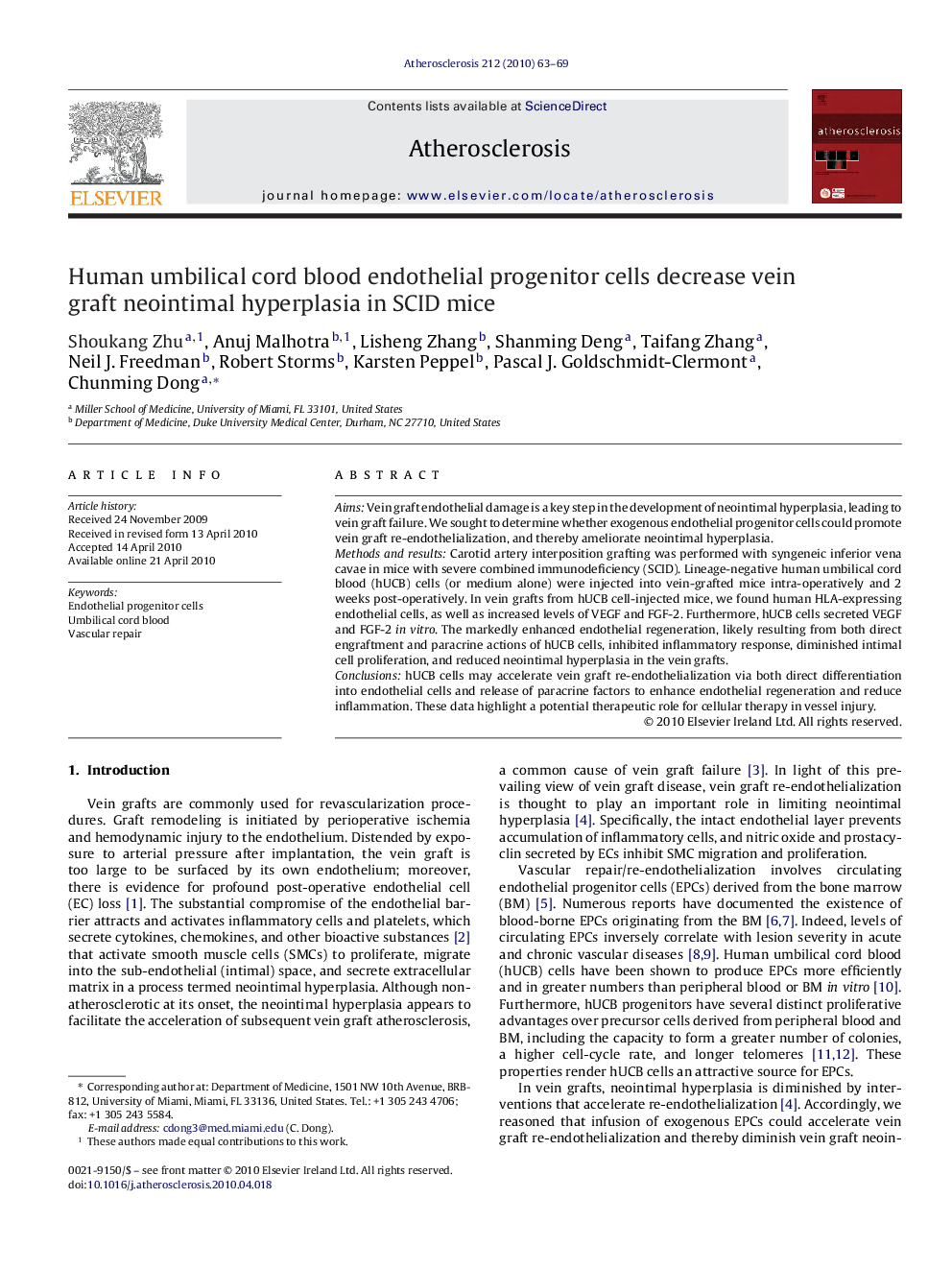| کد مقاله | کد نشریه | سال انتشار | مقاله انگلیسی | نسخه تمام متن |
|---|---|---|---|---|
| 2892829 | 1172391 | 2010 | 7 صفحه PDF | دانلود رایگان |

AimsVein graft endothelial damage is a key step in the development of neointimal hyperplasia, leading to vein graft failure. We sought to determine whether exogenous endothelial progenitor cells could promote vein graft re-endothelialization, and thereby ameliorate neointimal hyperplasia.Methods and resultsCarotid artery interposition grafting was performed with syngeneic inferior vena cavae in mice with severe combined immunodeficiency (SCID). Lineage-negative human umbilical cord blood (hUCB) cells (or medium alone) were injected into vein-grafted mice intra-operatively and 2 weeks post-operatively. In vein grafts from hUCB cell-injected mice, we found human HLA-expressing endothelial cells, as well as increased levels of VEGF and FGF-2. Furthermore, hUCB cells secreted VEGF and FGF-2 in vitro. The markedly enhanced endothelial regeneration, likely resulting from both direct engraftment and paracrine actions of hUCB cells, inhibited inflammatory response, diminished intimal cell proliferation, and reduced neointimal hyperplasia in the vein grafts.ConclusionshUCB cells may accelerate vein graft re-endothelialization via both direct differentiation into endothelial cells and release of paracrine factors to enhance endothelial regeneration and reduce inflammation. These data highlight a potential therapeutic role for cellular therapy in vessel injury.
Journal: Atherosclerosis - Volume 212, Issue 1, September 2010, Pages 63–69